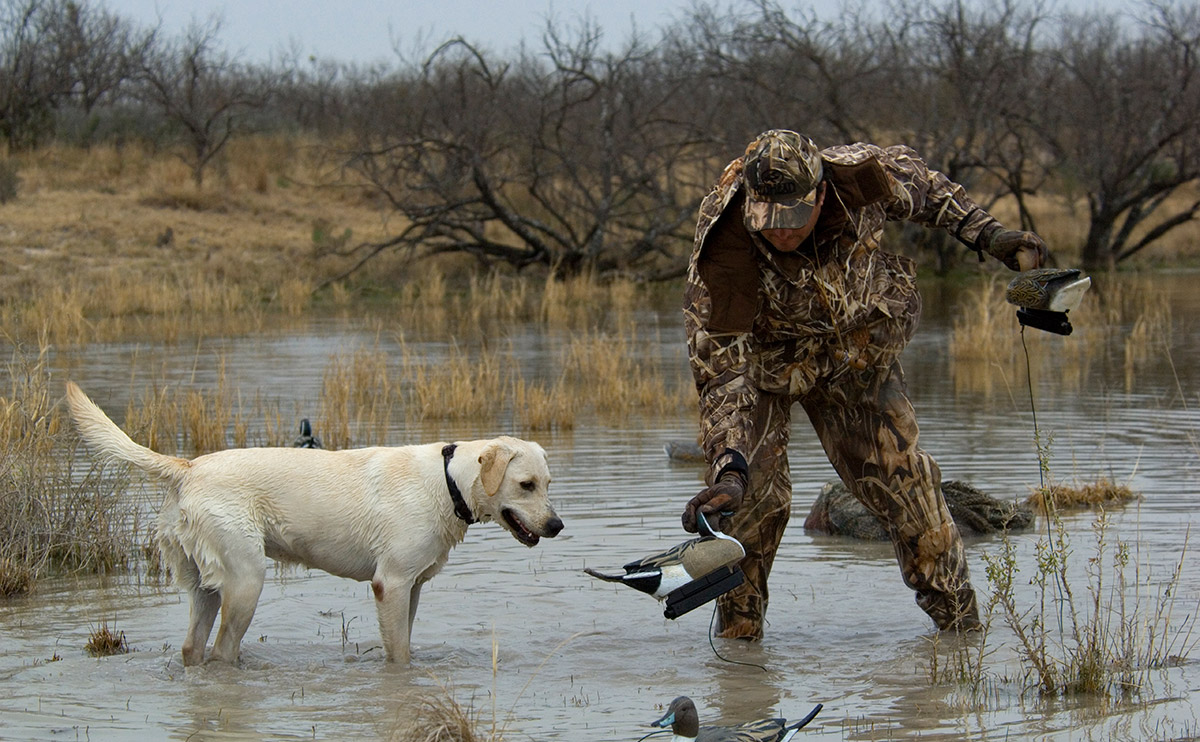Depending on the property, farmers, ranchers and other landowners can make an average of $4,000 a season, just for allowing hunters access to their land. Just watch out for stray bullets.

Several little spring-fed ponds dotted the 200-acre ranch, and one was about an acre wide. “All these animals would come down out of the hills to the pond to drink.”
Solomon, an artist, wanted to make some extra income, so he leased hunting rights to a small group of hunters. The land was big enough. The doves, deer and pronghorn antelope were ample. His neighbor had done the same.
‘One day these people from the neighboring property are looking across my land. They could see this buck heading across to come over and drink. These guys shoot across my land, which starts this knock-down drag-out fight with the hunters on my land. One of the guys on our side even shot the tires of the jeep on the other side.’
“Then one day these people from the neighboring property are looking across my land. They could see this buck heading across to come over and drink. These guys shoot across my land, which starts this knock-down drag-out fight with the hunters on my land. One of the guys on our side even shot the tires of the jeep on the other side.”
And that’s just the tip of the iceberg. Solomon has dozens of such stories, some good, many bad, from the 20 years he offered hunting leases. Drunken fights, poaching, piles of garbage, sub-leasing without permission, he’s seen it all.
“We’ve had some crazy stuff happen,” he says. “But we’ve had some great experiences over the years, too.”
And that pretty much sums up hunting leases in a nutshell. Depending on the property, farmers, ranchers and other landowners can make an average of $4,000 a season, just for allowing hunters access to their land. Some can even double their money with compartmentalized leases, where one area is available for, say, deer hunting and another for duck hunting. But like any business transaction, things can go south when you least expect it, and what started as a money-making venture can end up costing you instead.
The key is to have a crystal clear contract and a little luck on your side. “The horror stories I’ve heard are situations where the expectations aren’t clear,” says John Devney, vice president of the Delta Waterfowl Foundation. “Farmers should look at this the same way as renting someone else’s land to farm.”
[mf_mosaic_container columns=”2″ captions=”no”]
[mf_mosaic_item src=”https://modernfarmer.com/wp-content/uploads/2014/07/hunting1.jpg” number=”1″]
[mf_mosaic_item src=”https://modernfarmer.com/wp-content/uploads/2014/07/hunting2.jpg” number=”2″]
[mf_mosaic_item src=”https://modernfarmer.com/wp-content/uploads/2014/07/hunting3.jpg” number=”3″]
[mf_mosaic_item src=”https://modernfarmer.com/wp-content/uploads/2014/07/hunting4.jpg” number=”4″]
[/mf_mosaic_container]
Devney says it’s important to spell out everything you expect in the contract, so you can easily jettison any scofflaws. But you must take into account what hunters can reasonably expect, too. In some areas, you’ll have to provide structures like duck blinds. And, of course, your property must have plenty of wild game.
‘The horror stories I’ve heard are situations where the expectations aren’t clear.’
“If a hunter is going to fork out money,” says Devney, “the land needs to be in the right place and have the right habitat for the wildlife. You’re going to have to start thinking about managing the habitat.”
You can get a sense of your local market by networking with hunters in your area and asking them to evaluate your property. And you can look online for contract examples and guidelines from university extension offices.
But you don’t have to go it alone. Companies like Hunting Lease Network will do it all for you — for a fee. The company charges 25 percent of the lease amount, but it’ll handle every detail. “We evaluate the property and take care of all the marketing,” says Troy Langan, assistant vice president. “We negotiate and manage the lease, collect and disburse payment. We help to establish rules for access and boundaries, answer any questions hunters have, and issue ID cards.” And the fee includes a minimum of $2 million in liability insurance.
“Someone might get hurt on your property,” he says. “That’s why proper liability coverage is mandatory for us.”
Langan says demand for hunting leases has grown over the last four to five years. “As we see public lands get more crowded and unsafe, private lands become more popular.”
[mf_mosaic_container columns=”2″ captions=”no”]
[mf_mosaic_item src=”https://modernfarmer.com/wp-content/uploads/2014/07/hunting5.jpg” number=”1″]
[mf_mosaic_item src=”https://modernfarmer.com/wp-content/uploads/2014/07/hunting6.jpg” number=”2″]
[/mf_mosaic_container]
And that means you can be choosy. A good group of hunters can bring fringe benefits that go beyond a check in the mail. At the very least, they’ll help manage wildlife populations and reduce crop damage. But some hunters will even make improvements on the property to make the hunting better, such as clearing brush, mending fences, or adding infrastructure. And they can keep an eye out for poachers and trespassers.
“For a lot of hunters, once they find a good property they don’t want to lose it,” says Langan, “so they go above and beyond because they want to renew the property for years to come. Leases can benefit both sides of the equation.”
I liked how you mentioned that you have to do research before leasing land for hunting. I enjoy hunting and never knew so much went into leasing land for duck hunting. In the future, I will take more into account what the best way to bring benefits into leased lands is so I can help out.